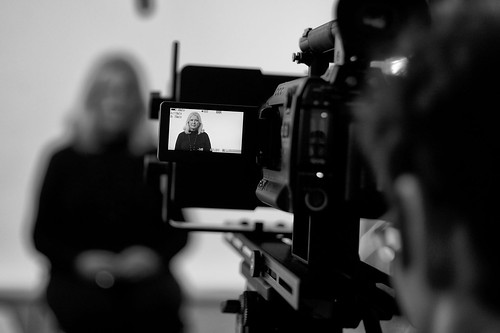
Former judge Andrée Ruffo speaks out for docs.
A recent Vancouver Sun article sums up the crisis of the long-form documentary in Canada. Cutbacks everywhere, shrinking budgets and most of all diminishing broadcast windows. Outside of the National Film Board and the arts councils, the whole Canadian funding system is based on acquiring a broadcast license. That’s the key which opens the door to other funding agencies. As networks turn increasingly to entertainment-oriented, cheap-to-produce ‘reality shows’, there is less space and less money for the kinds of docs that investigate and question the real world instead of inventing hokey competitions and survival challenges.
A March 2011 report from the Documentary Organization of Canada examined these trends, showing there had been a six-year decline in doc funding. The situation is worse in English Canada than in Quebec, because this province actually has a cultural policy, a real film culture and some invaluable institutional support notably from SODEC. In addition to the public broadcasters the Astral-owned ‘Canal D’ puts serious money into a handful of long-form documentaries every year.
Nonetheless, the most creative response to the crisis has come from Montreal. A small group of filmmakers, calling themselves ‘Documentary’s G7’, some of them members of DOC’s Quebec chapter, have created a campaign called ‘J’aime le Documentaire’ – I love docs. In addition to using social media for networking, they have made a series of ten public service messages for use on television, during festivals and on the web. These ‘spots’ – quite elegantly made in black-and-white by experienced ad director Richard Leclerc on a minimal budget – feature well-known Quebecers who state their heartfelt support for documentaries. Drawn from a wide spectrum, they include among others singer Chloë Saint-Marie, human rights lawyer Julius Grey, and – cleverly – politicians or former politicians from every major political camp in Quebec. ‘They may disagree on everything else’ says G7 member Patricio Henriquez, ‘but they all agree documentaries have a key role to play in the way we perceive social and political developments and issues. This shows that documentaries can have a unifying effect in society, at least here in Quebec.’ In addition, people who were attending the Rencontres doc fest last November were invited to state their support for the form, resulting in another slew of passionate statements for use on the web.
The ‘I love documentary’ campaign is supported by a series of industry organizations and networks as well as Canal D which has been broadcasting the spots since before Christmas. The ads will also be shown before some films (fiction and documentary) at the upcoming Rendez-vous du cinema québecois.
Thanks to Sally Rylett for help with this blog post.